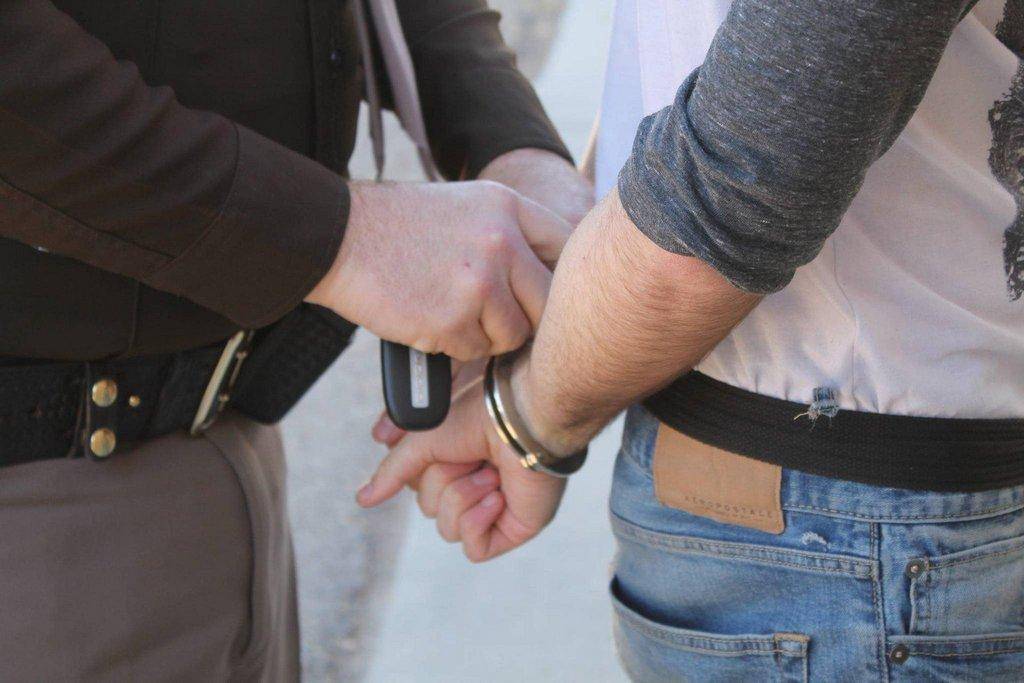By Cam Williams, Jeff Wood and Polly Atwood
Entering a jail seems terrifying to most, but unusually familiar to others. Carbon County Sheriff’s Office arrestees enter through the sally port, which i essentially a garage. From there, arrestees are in the booking area. Throughout the state, most facilities are similar in that regard. From that point, bookings can vary. People who are combative, intoxicated or distressed may have to be placed in holding until they calm down or are no longer intoxicated. An average arrestee is searched by deputies, completing a variety of paperwork. Inmates are asked about medical needs, mental health needs and substance abuse needs at the intake time.
The Carbon County Sheriff’s Office facility houses a maximum of 86 inmates at one time. To make it from the booking area to the “sections” (as we call them), inmates must be strip searched. Strip searches are conducted as quickly and professionally as possible. After the search, a shower is offered to arrestees. Inmates are issued a blanket, sheet, two towels, a washing pin bag, two uniforms and a pair of shoes. Each inmate is offered a hygiene packet consisting of a comb, toothbrush, toothpaste, deodorant, bar of soap and 2-in-1 shampoo. These packets can be reordered as they are needed by the inmate.
The sections at the Carbon County Jail house between eight and 16 inmates. These sections are cleaned by the inmates housed there. Staff at the sheriff’s office provide for the daily needs of the inmates housed there. Breakfast is served at around 7:45 a.m., snack at 12 p.m. and dinner at 5 p.m. The meals offered add up to be between 2200-2800 calories; the snack is just additional calories.
Suicidal people that come into the facility are placed in an observation area and a local mental health provider will come in and evaluate the individual. The facility also has local medical staff that provides services to inmates.
Each day, inmates have time out in the dayroom from 6 a.m. until 11 p.m. Visiting on the kiosk system is also between these times. Inmates have a kiosk in the section allowing them to write requests, order food called commissary, make phone calls, email family and talk using video chats. The use of technology has helped advance the facility’s ability to better serve the inmates and the community.
Medical:
The jail medical staff consists of three highly experienced RNs with a combined 60 years experience in ICU, ER and general medicine wards, and Dr. Williams, who has 31 years experience in ER and seven years in general medicine. Two of the RNs have been working with Dr. Williams at the Carbon Jail for 17 years.
There is a daily visit by the staff with review of the intake medical sheet provided at booking, emphasizing possible infectious diseases possibly being brought into the institution, the individual’s sense of whether they may be expecting withdrawal symptoms, a list of medications, pharmacy and personal physician, allergies, etc. The accuracy of this list is always time consuming and the staff spends a large amount of time verifying current medications.
National statistics show that 80% of criminality is substance related, so we have become enlightened to the treatment and softening of withdrawal symptoms after entering the walls of the jail. Studies have shown that inmates “coming down hard” do not benefit in any way from the suffering and are just as likely to return to using. We have developed a protocol for medication assisted withdrawal, which can be instituted by county corrections staff until clinical staff can evaluate them (within 24 hours). Of these patients, the heavy alcohol users are the most at-risk and 3-4 times per year the sheriff’s office may have to send an inmate to the ICU for care.
A large emphasis of late has been to prevent accidental overdose and death after jail release. This is because when people return to using at the level before their jail stay, they may overdose and this can result in death. We are providing a Vivitrol shot to people in the last few days of their stay, which is a month-long medication that will block any opiate they might use. Inmates communicate with the clinical staff through the e-mail system in the kiosk, are prioritized and seen in clinic promptly. Families can also communicate with the clinical staff by e-mailing the jail and leaving information or call back information and request.
General advice to potential guests:
– Be accurate and truthful when filling medical intake form.
– Communicate specifically about your medical concerns.
– Report suicidal thoughts, personal threats or safety concerns.
– Do not see a provider just before being booked into jail, asking for sedation medications. They may not necessarily be continued.
– For families – you should know that some medications can be purchased through commissary by your inmate. Placing $20 per month into their account may allow them to handle any possible problems without incurring medical visits and care by the clinic staff.
Youth:
The Castle Country Youth Center is located at 1395 South Carbon Avenue in Price. Phone: (435) 636-4740
We would invite the public to visit our website at https://jjs.utah.gov to view the variety of services offered here in Price and throughout the state of Utah. You will find information on our local detention facility, youth service programs and receiving center.

